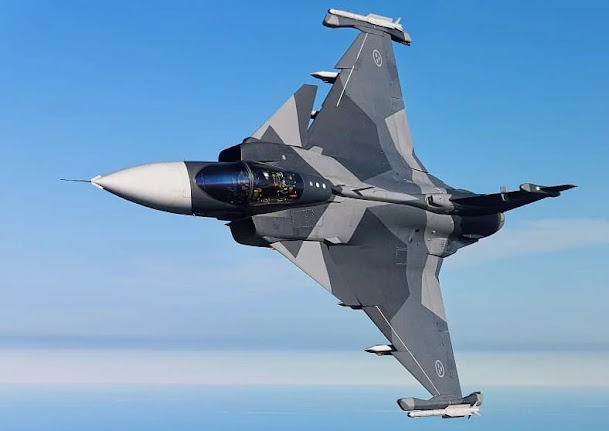Being able to reduce weight and increase maintenance efficiency on fighter jets is undoubtedly a point of advantage for manufacturers, and recently Saab from Sweden reported that its newest fighter jet, the Gripen E, has received an upgrade to become lighter and more efficient in maintenance thanks to the use of Lithium ion (Li-ion) battery.
Saab said the key to modern warfare is the ability to adapt quickly – maintaining a technological advantage over what the opponent is doing. The innovative avionics system on the Gripen E enables rapid improvements in software and hardware, demonstrated by the successful use of Li-ion batteries.
Saab in its release claims that the Gripen E's design allows it to be upgraded and updated in a very short period of time. New functionality can be added quickly without compromising aircraft availability. Existing algorithms and hardware such as processors, weapons, and structural components can be quickly replaced or modified with a high degree of control for each customer's needs.
The latest example is the change in hardware on the Gripen E by replacing the main and emergency batteries on the Gripen E, namely from three thermo batteries to two Li-Ion batteries. The changes mentioned reduce aircraft weight as well as maintenance costs for customers.
“This successful change, which we have made together with our customers, further increases Gripen's redundancy and resilience. This new type of business is what we will see in the future, namely us together with customers further developing our systems and products. Johan Segertoft, Head of the Gripen business unit, Saab.
24 volt, 36 amp-hour battery, designed specifically for the Gripen E-series by EaglePicher. These batteries have extreme low temperature capabilities and longer operational life for longer time on wing and reduced maintenance.
The battery includes integrated battery charging and advanced performance power electronics technology as well as an integrated battery management system with a two-way communication bus that enables increased pilot and maintenance situational awareness.
Basically, the use of Li-ion batteries in aircraft has several advantages compared to thermoelectric batteries or thermo batteries, namely:
1. Higher Energy Efficiency
Li-ion batteries have higher energy efficiency in converting chemical energy into electrical energy compared to thermoelectric batteries. This means that Li-ion batteries produce more electrical energy from the same amount of fuel.
2. Greater Energy Capacity
Li-ion batteries have a greater energy capacity than thermoelectric batteries, meaning they can store more energy in a smaller space. This is especially important in aircraft applications, where space and weight are critical factors.
3. Lightweight
Li-ion batteries are relatively light, so they do not add significant weight to the aircraft. Weight is an important factor in aircraft design for fuel efficiency and overall performance.
4. Emergency Energy Storage
Li-ion batteries can be used as a backup or emergency power source for critical systems on aircraft, such as communications, navigation and lighting devices in emergency situations. They can generate power instantly and last quite a long time.
5. Good Cycle Durability
Li-ion batteries have good cycle life, meaning they can be recharged and used repeatedly without experiencing significant capacity loss. This makes them suitable for long-term use on aircraft.
6. Easy to Control
Li-ion batteries can be easily controlled using an advanced battery management system to optimize battery performance and safety. This allows the aircraft to accurately monitor and control the battery.
Although Li-ion batteries have many advantages, it should be noted that the use of Li-ion also carries potential risks related to fire or explosion, which must be managed carefully. Therefore, safety in the care, handling and application of Li-ion batteries is of paramount importance in the aviation context.







,%20Operational%20Range%20of%20Rafale%20Fighter%20Jets%20Increases%2025%20Percent.jpg)




0 Comments